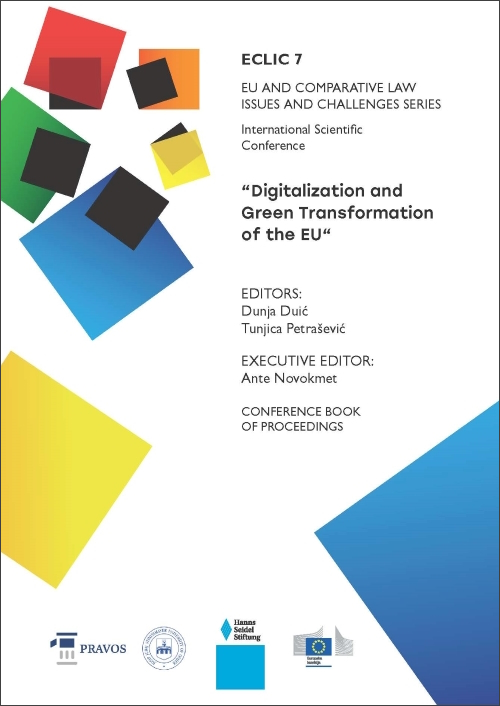WORKPLACE PRIVACY IN THE EU
THE IMPACT OF EMERGING TECHNOLOGIES ON EMPLOYEE’S FUNDAMENTAL RIGHTS
DOI:
https://doi.org/10.25234/eclic/27458Abstract
Over the last decade, several new technologies have been adopted that enable more systematic surveillance of employees, creating significant challenges to privacy and data protection. The risks posed by the new devices and methods were exacerbated with the advent of Covid, with the involuntary introduction of digital tools to measure work output and efforts to get visibility back in the workplace through new means. Against this backdrop, the article aims to examine the main issues in workplace surveillance. After a brief overview of the range of surveillance methods, such as video surveillance, network and e-mail monitoring, and employee tracking softwares (the so-called “bossware”), as well as the challenges posed by the new technologies, the paper goes on to individually analyse the legal aspects of monitoring employees for security or performance-related reasons. The phenomenon is examined in light of relevant EU legislation (the General Data Protection Regulation of 2016 being the most relevant one), as well as the opinions adopted by the Article 29 Working Party established by Directive 95/46 and the guidelines drawn up by the European Data Protection Board, established by the GDPR and replacing the WP. In doing so, the paper will elaborate on the concept of transparency, consent, purpose limitation, data minimization, data retention, the so-called expectation of privacy, and the lawfulness of processing, especially the issue of balancing the legitimate interests of the employer against the interests or fundamental rights of the data subject. The results of the analysis suggest that new and emerging technologies developed to monitor employees in order to address productivity issues, security risks, and sexual harassment, combined with the fact that remote and hybrid work becomes the norm inevitably increase the porosity between work and private life and blur the line between public and private. Such an extensive intrusion into privacy calls for enhanced institutional efforts to protect workers from the surveillance overreach of the new digital devices.
Downloads
Published
How to Cite
Issue
Section
License
Copyright (c) 2023 Adrienne Komanovics

This work is licensed under a Creative Commons Attribution-NonCommercial 4.0 International License.
Authors retain the copyright on the papers published in the Journal, but grant the right of first publication to the Journal. Papers accepted for publication or already published in ECLIC of the Faculty of Law in Osijek may be published by the author(s) in other publications only with proper notice of its previous publication in ECLIC.


